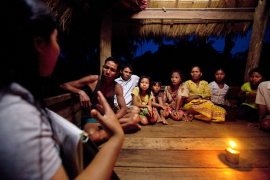Application period: 23-Mar-2021 to 06-Apr-2021
The Community, Rights and Gender (CRG) Senior Specialist shall work for the CRSPC to facilitate and support countries with issues related to human rights and gender related barriers. For malaria, human rights and gender related barriers predominantly, but not exclusively, focus on diverse cultural and socioeconomic barriers to all services and go beyond the dynamics specifically related to malaria. Developing a patient/population-centered approach for malaria services therefore needs to consider this broader context.
The overall objective is to establish partnerships, strengthen capacities and catalyze evidence and action on barriers to equitable malaria services and underserved populations in eligible countries. The countries to be supported present highly complex technical, epidemiological, human rights and political contexts for implementation of malaria control and elimination. These scenarios significantly enhance the complexity of malaria program implementation and require senior and experienced consultants, able to command the respect of senior government officials and partners. The implementation support from the Senior Specialist will address core barriers to equitable malaria services.
The assignments will be related to the malaria programme and the interventions to remove human rights barriers and access to services in national responses to malaria. The assignments could include (but are not limited to) the following:
Strategy, planning and implementation
-
Design the implementation of evidence-based and effective combinations of programs/interventions to reduce human rights-related barriers to accessing health services within the context malaria;
-
Develop a strategy to build capacity of communities, community-based organisations, health systems and state implementers to effectively design, and implement programs to address human rights-related barriers;
-
Carry out a comprehensive review of country programme documentation (Strategic Plan; operational plan, work plans; gap analysis, etc.) using different tools including Malaria Matchbox
-
Ensure integrating programs/interventions into existing prevention and treatment programs, and national responses to malaria, so as to support prevention and treatment efforts;
-
Ensure that all programs/interventions are gender-responsive.
-
Develop detailed strategies, as well as risk assessment and mitigation plans for the specific intervention or sub-intervention areas and support operational and financing plans.
-
Develop Civil society and community coordination and communication in malaria and community systems strengthening through the use of established tools and mechanisms.
-
Review and validation of the comprehensive programmatic and/or financial gap analysis for malaria interventions in the context of malaria related human rights barriers to services and commodities.
-
Lead high-level discussions with senior management, partner representatives and other key stakeholders to broker consensus on any of the above intervention areas.
-
Undertake a technical review of chosen strategies and interventions to ensure that they are technically sound and in line with WHO normative guidance, feasible to implement and will achieve sufficient impact based on malaria epidemiology of the country / area.
Monitoring and evaluation
-
Develop monitoring and evaluation tools to address human rights-related barriers with a clear set of indicators to measure the impact of the programs.
-
Develop country specific training, supervision, monitoring, evaluation and activity protocols for assessing key bottlenecks and questions, including timelines and indicators for finalization and monitoring of implementation.
-
Coordinate the analysis of underlying causes of implementation underperformance and identify strategies and interventions to address these bottlenecks.
-
Review existing support and conduct partnership mapping of current activities, resources and anticipated changes;
Key Deliverables:
-
The deliverables of each mission are determined based on the specific assignment, such as conducting assessment using Malaria Matchbox tool, capacity building, protocol development, planning etc.
-
Final report to CRSPC analyzing support provided including recommendations for improving future support to countries.
-
Regular progress updates outlining in detail the support provided including challenges and way forward.
